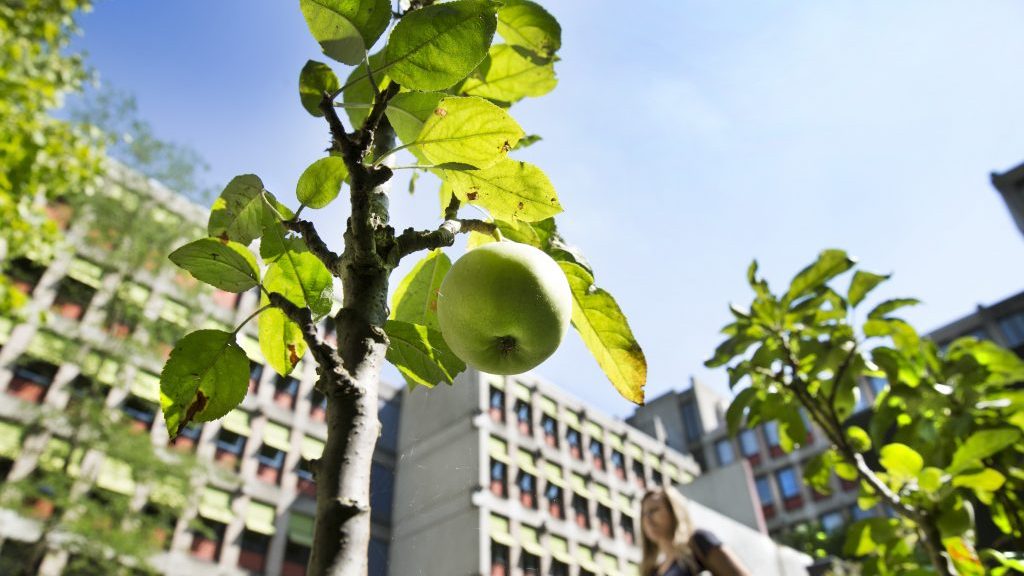World of Walas founder Gerben van Straaten gave attendees at Buildex Vancouver his case for the future of urban development.
He envisions an innovative, holistic approach that can be profitable as well as environmentally friendly.
World of Walas was founded in 2010 by van Straaten after over 25 years of experience working with cities, academia, governments and business on large, complex developments.
Van Straaten, inspired by economists Jan Pen and urbanist Jane Jacobs, began trying a new business model with a different set of rules. His methods stem from the problems slowly worsening as the planet becomes more populated and urbanized.
“One hundred and eighty thousand people a day migrate to cities,” he said. “Soon 85 per cent of the planet will live in an urban area.”
Logistically, supplying cities food and water and keeping them safe from the impact of climate change will become more challenging.
“We want to look at the cities of the future,” said van Straaten. “I am not prepared to wait. I know I need to do this battle today and I am not prepared to be asked in 20 years by the youth what I did to address climate change.”
While his concepts are big, Straaten’s execution is local.
“We take these big challenges to our projects,” he said.
Recently, Walas has been passionate about transforming unwanted existing buildings into modern sustainable developments.
Van Straaten spoke about Walas’ Carbon6 project located in Heerlen, Holland. The city has been hit with decades of economic decline in traditional industries of coal mining and chemicals. On top of that, one of the city’s largest employers – the National Statistics Office – then decided to leave.
But this created an opportunity for Walas, whose team created a plan to revitalize its vacant buildings and sites. Walas now owns and operates the sprawling 500,000 square foot complex, which has been fully repurposed for arts and culture, start-up companies and social enterprises. A total of 1,200 people are currently employed in the building which is on its way to being carbon neutral. The complex is the largest creative cluster in the Netherlands.
It has also given Walas the opportunity to test out innovations for circular economy, green energy and urban farming. And unlike many other developers, Walas always tries to hang on to developments rather than selling.
“We want to be first in and last out,” said van Straaten. “You have to be ready to be there at the very end if you want sustainability. We have never sold. We start thinking about who is going to use this place, want to know their clients. We want them always to do better. We want vital, resilient communities.”
Van Straaten also highlighted Walas’ Phoenix West project in Dortmund, Germany, a titan of the steel industry. But steel production halted when the factories began closing in the late 1990s. One of these factories, Phoenix West, remains abandoned. Walas envisions a more modern, local, mixed-use economy based on services, knowledge, technologies and logistics.
Revitalization efforts will begin with a new, circular innovation centre in the open space in front of the plant’s blast furnace. This area will be the future home to innovation in technology, services, farming and innovations, economy and entrepreneurship.
“We buy, develop, keep it,” said van Straaten. “We have a very gradual way of investing.”
Walas’ focus on cultivating innovation, explained van Straaten, is because the company tries to adhere to the Tinbergen Rule, created by economist Jan Tinbergen. Tinbergen’s rule states that for each and every policy target there must be at least one policy tool. If there are fewer tools than targets, then some policy goals will not be achieved.
“This is how we deal with projects and innovation,” said van Straaten. “Access to innovation is important to us. Our only hope is to invent something that is smarter than ourselves. You don’t need to be the strongest. You need to be the best at adapting to your situation.”
Van Straaten highlighted that recently Walas has been working to innovate in the field of farming to better prepare for supplying future cities. Its Farm2Future project is developing new agriculture systems more flexible for urban environments. This includes research and education on integrated pest management, closed system fish farms and small scale vermiculture.
Van Straaten concluded by saying while the problems the planet faces are too daunting for one person or idea, they can be solved through collaboration.
“We need integrative holistic solutions, have to collaborate globally,” said van Straaten. “’Innovate or die’ is nice but ‘collaborate or die’ is what its all about.”





Recent Comments